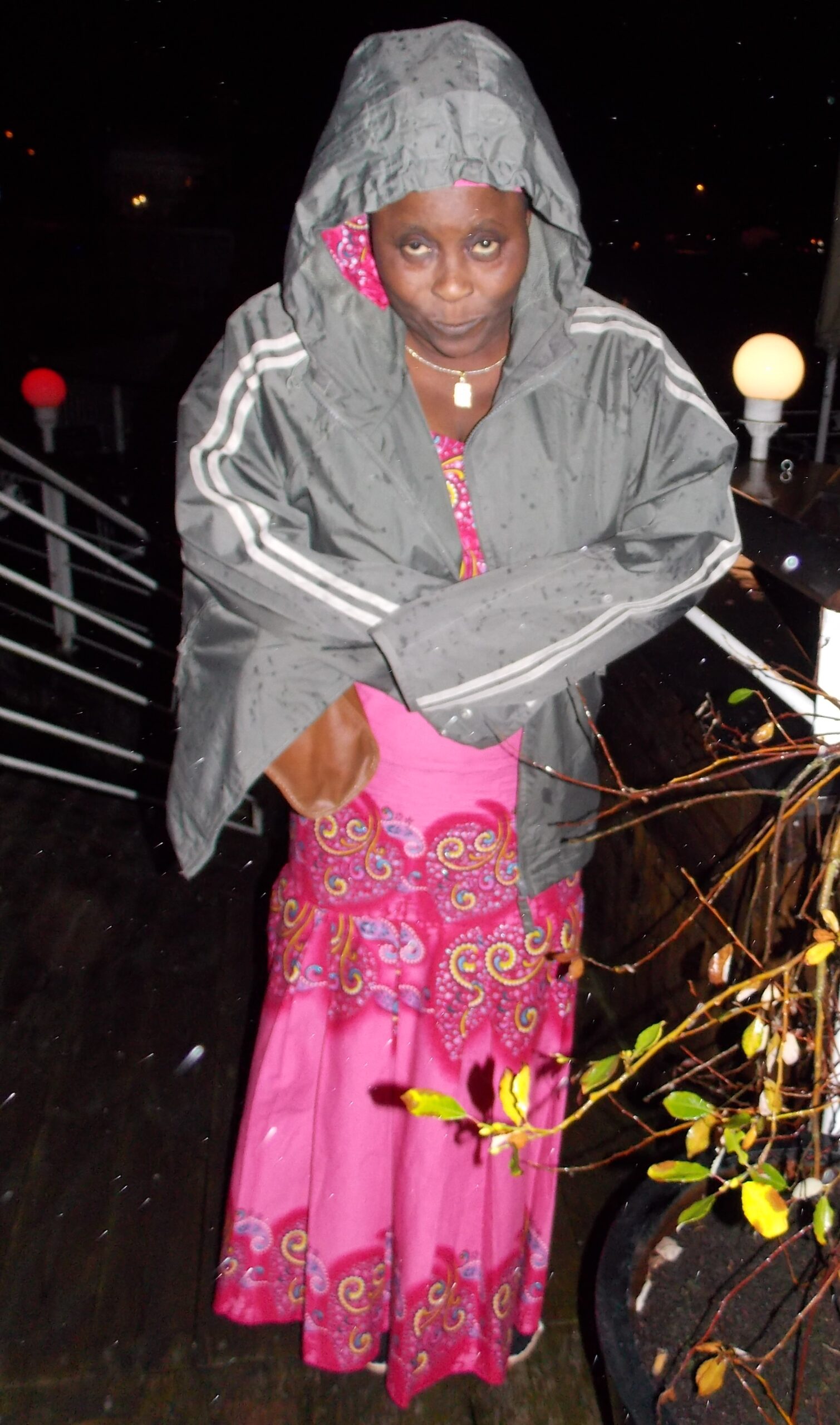JOURNALIST JOKE KUJENYA recounts how an unexpected allergic reaction brought her to the brink of death. Between 11:30 pm on Tuesday, March 19, and 3:40 am on Wednesday, March 20, 2019, Kujenya remembers experiencing a complete shutdown of her senses. Thanks to her daughters, health officials, and praying friends, she survived what could have been a fatal incident.
REPORTING MY own near-death experience is surreal.
I was working on a script about federal government projects when I suddenly felt a sharp respiratory issue.
My throat, ear, eye, and nose became severely prickly and itchy.
The unexpected attack made it hard to breathe, and I felt dazed.
My shortness of breath worsened, and I tried to call for help but sounded wheezy. My whole body itched intensely.
I asked for ice cubes and put one in my mouth, which eased my throat a bit.
I spat out a chunk of phlegm, but my condition didn’t improve.
“Please, help me; I don’t know what’s happening to me,” I called out to my family.
They thought I was reacting to dust from outside, so I rushed to the bathroom to bathe.
The distance seemed endless.
My palms and soles doubled in size, and I kept asking, “What’s happening to me?”
Despite not being prone to fear, I was terrified that night.
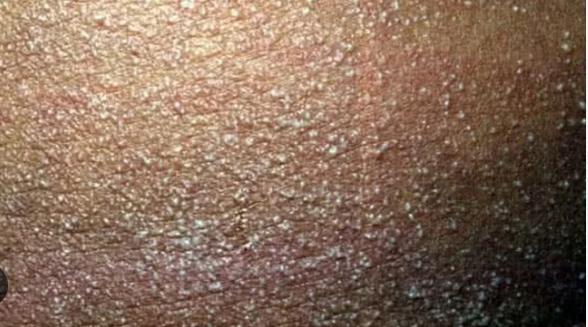
I asked my youngest daughter to accompany me to the bathroom. I saw nothing; everything was dark despite the lights being on.
My daughter mixed warm salty water, a remedy for allergic reactions causing body itching.
I could only manage one bowl of warm water on my body before collapsing on the bathroom floor.
I asked my daughter for help, and she laughed, thinking I was exaggerating.
My second daughter then came in and took me out. I asked her what was happening, but she didn’t know and suggested we pray.
She took me to my room, where I knelt by my bedside to pray, struggling with my weak, shaky legs.
I called on Jesus for help, but the itchiness and wheezing worsened.
My daughter insisted I lie down, straightening me on the bed and praying with me.
On Saturday, March 16, I bought fresh avocados from Amambara Community in Anambra State.
I left them to ripen and ate one on Tuesday. Later that evening, I pestered my family to eat the avocados.
Reluctantly, they agreed to have a bite around 9:21pm.
I felt fine initially, but soon after, I started coughing, sneezing, and experiencing itchy eyes and ears.
My youngest daughter, who hadn’t eaten the avocado, wondered if it was the cause of my reaction.
Back in bed, I couldn’t lie still. I felt weak, dizzy, and couldn’t see.
My daughter checked on me at 2:30am, finding me trying to get up but falling back.
She tried to help me to the restroom, but I crawled because my legs couldn’t support me.
I fell heavily on the floor, and she saw my eyes had turned red and bloodshot. She screamed for Jesus’ help.
My elder daughter, who was visiting, rushed to the scene.
Seeing me lifeless, they began praying and called pastors and a nearby brother for help.
They moved me to the toilet seat, but I quickly slid off. They intensified their prayers.
My first daughter performed CPR while my youngest massaged my cold feet.
A retired pharmacist, whom they called for help, arrived and took over the resuscitation.
By 3:10am, I showed signs of improvement. The pharmacist advised gentle physiotherapy to keep me warm.
At 3:40am, I opened my eyes, but couldn’t see. My daughters called out to me, but I didn’t respond.
My first daughter had an early morning appointment, so my second daughter stayed with me.
I was in a state of unconsciousness till morning.
When I regained consciousness, I saw my daughters and granddaughters around me.
They thanked Jesus for my recovery. I was still weak and blacked out again after trying to get up.
They prayed and let me rest for an hour. Later, I was taken to Healing Virtue hospital.
At the hospital, the doctor suspected an allergy shock. After tests, it was confirmed I had an allergic reaction to avocados.
The doctor explained that anaphylaxis, a severe allergic reaction, can be fatal if not treated immediately.
I was placed on medication and advised to rest for 72 hours. The inner shaking in my body stopped by Friday night.
Reflecting on the incident, I wept from Tuesday to Thursday, imagining what could have happened if I hadn’t survived.
I’m grateful to be alive to tell this story.
First Published in Sunday magazine of March 31, 2019 by The Nation
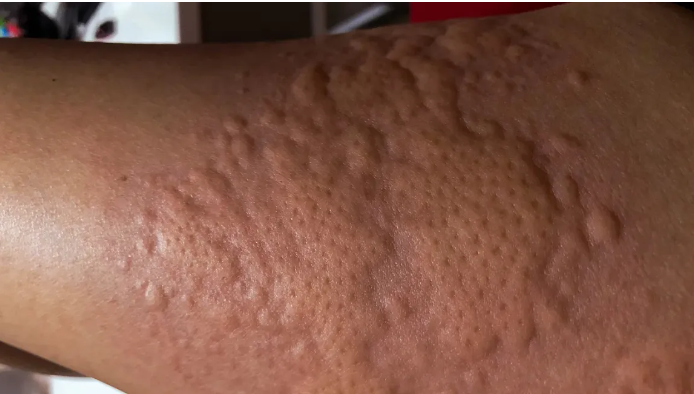
Hidden Dangers of Allergic Reactions: A Life on the Line
Journalist Joke Kujenya never imagined a simple avocado could almost take her life. Her ordeal reveals the lurking dangers of allergic reactions, shock, and anaphylaxis, which can transform ordinary moments into life-threatening emergencies.
The Nature of Allergic Reactions
Allergic reactions are common yet potentially dangerous events that occur when the immune system overreacts to a substance known as an allergen.
Often, these reactions can vary from mild symptoms like sneezing and itching to severe and life-threatening conditions such as anaphylaxis.
Hence, understanding the nature of allergic reactions, the severity of shock, and the critical aspect of anaphylaxis is crucial for effective management and prevention.
Allergic reactions happen when the immune system mistakenly identifies a harmless substance as a threat.
Common allergens include certain foods, pollen, dust mites, animal dander, and insect stings.
The immune system releases chemicals like histamine to combat the allergen, leading to symptoms that can affect various parts of the body.
As of 2021 in Nigeria, the prevalence of asthma was 6.4%, atopic eczema (skin allergy) was 26.1%, and allergic rhinitis varied from 22.8–29.6% depending on the operational definition.
Also, the prevalence of allergic rhinitis was 22.8% (22.2–23.4%), asthma and rhinitis increased with age (prevalence of clinical asthma: 3.1% (2.8–3.4%), 9.8% (9.1–10.5) and 10.7% (9.4%-12.0) among 6–17 years, 18–45 years and >45 years respectively), as far back as Year 2019.
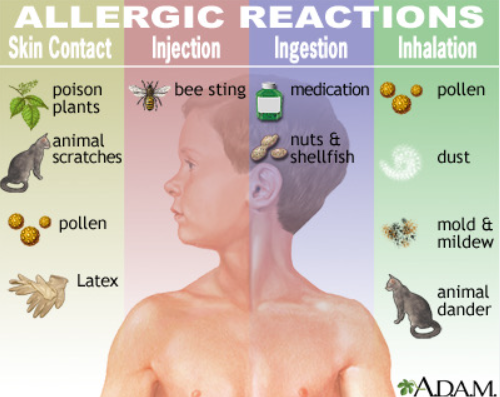
Mild allergic reactions may present as localized symptoms such as:
Skin Reactions: Hives, eczema, or rash.
Respiratory Issues: Nasal congestion, sneezing or a runny nose, itchy throat, or mild wheezing.
Digestive Problems: Nausea, vomiting, or diarrhea.
However, these symptoms, while uncomfortable, are generally manageable with antihistamines or other medications.
Above all, avoiding known allergens such as keeping away from triggers, is the most effective way to prevent these reactions.
A Condition Unknown to Many
It was a huge surprise when a dear colleague of Journalist Joke asked her, but “what is allergic reactions and how does it affect people?” It then struck her to write on the dangers of allergic reactions and anaphylaxis shock to emphasize the importance of recognizing symptoms and acting quickly to seek medical help.
The Sudden Onset of Anaphylaxis
Allergic reactions vary in severity, but anaphylaxis is the most extreme. It can cause a person’s body to go into shock, narrowing the airways and making it hard to breathe.
Without immediate treatment, it can be fatal.
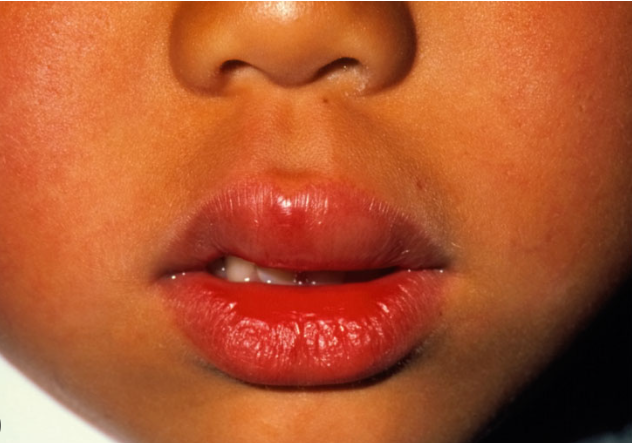
Anaphylaxis is a severe allergic reaction that can occur within seconds or minutes of exposure to an allergen, such as certain foods, insect stings, medications, or latex.
Symptoms include skin rash, nausea, vomiting, difficulty breathing, and shock. If not treated immediately with epinephrine, it can lead to unconsciousness or death.
It is characterized by a sudden onset of symptoms that can progress quickly if not treated. Anaphylaxis requires immediate intervention to prevent serious complications or death.
In Nigeria, over 100,000 cases occur annually, but the condition is often misdiagnosed or underestimated.
The Avocado Connection
Any food can cause varying degrees of allergic reactions in different people. Kujenya’s near-death experience was traced back to avocados, though she had eaten them earlier, unaware that she was allergic to it.
Avocado allergy is less common than peanut or shellfish allergies, but it can be just as severe.
Several other foods and fruits also cause reactions in people’s bodies that often lead to anaphylactic shock triggers, a condition that many do not survive.
This stresses the importance of being aware of potential allergens in what we consume and having a plan in place to deal with severe reactions.
Common triggers of anaphylaxis
- Foods: Peanuts, shellfish, eggs, and dairy products.
- Insect Stings: Bees, wasps, and hornets.
- Medications: Antibiotics, non-steroidal anti-inflammatory drugs (NSAIDs), and certain anesthetics.
- Latex: Found in gloves, balloons, and some medical devices.
The Importance of Awareness
The importance of recognizing the symptoms of anaphylaxis and understanding the urgency of treatment cannot be overemphasized.
Sadly, many people are unaware of their allergies until they have a severe reaction.
However, being prepared can mean the difference between life and death.
Also, having access to epinephrine auto-injectors and knowing how to use them is crucial for anyone with known allergies.
For many, allergies are a minor inconvenience. For others, they can be deadly. Countless others have faced similar life-threatening situations.
It is essential to educate ourselves and others about the risks and symptoms of severe allergic reactions.
Schools, workplaces, and public spaces should be equipped with the knowledge and tools to handle anaphylaxis emergencies.
Signs and Symptoms of Shock
Recognizing shock is critical for prompt treatment with its common signs and symptoms. Medical experts that people should look out for;
Rapid Pulse: An abnormally fast heart rate as the body tries to compensate for low blood pressure.
Weakness or Dizziness: Feeling lightheaded or faint due to inadequate blood flow to the brain.
Confusion or Altered Mental State: Difficulty thinking clearly or disorientation.
Pale or Bluish Skin: Changes in skin colour indicating poor oxygenation.
With such, immediate medical attention is required if shock is suspected.
Treatment typically involves stabilizing blood pressure, restoring fluid balance, and addressing the underlying cause or causes.
Types of Shock
Anaphylactic Shock: This is an extreme reaction to an allergen that causes the blood vessels to dilate rapidly, leading to a dramatic drop in blood pressure. Symptoms include confusion, pale or bluish skin, and a weak or rapid pulse.
Hypovolemic Shock: Often resulting from severe blood loss or dehydration, this type of shock can be triggered by an allergic reaction if it leads to significant fluid loss through vomiting or diarrhea.
Cardiogenic Shock: This occurs when the heart is unable to pump blood effectively, which can be exacerbated by severe allergic reactions that affect cardiovascular function.
Huge Implications
Allergic reactions, shock, and anaphylaxis are serious conditions that require immediate attention and treatment.
People’s harrowing experience any day can turn into a fight for survival.
Awareness needs to be raised to encourage others to take allergies seriously, be watchful of what they eat, wear, be conscious of triggers in their immediate environments, stay informed, and be prepared with the knowledge of medical intervention, and the unyielding support of loved ones.



